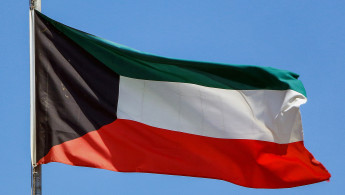Stateless Bidoon suicide attempt prompts outcry in Kuwait
The 27-year-old attempted self-immolation in Kuwait's Sulaibiya district, south of Kuwait City, prompting outrage from social media users over the government's alleged mistreatment of the stateless community.
The young man survived the fire but suffered second degree burns, local media reported, sparking outrage among Kuwaitis about the plight of the Bidoon community.
"How painful is it that such news has become a regular and repeated event," Kuwaiti journalist Arwa Al-Waqian said.
"This is evidence of the severity of their circumstances and an attempt to end their lives is nothing but a final cry for help."
In June, a similar attempt at self-immolation by a member of Kuwait's Bidoon community sparked anger in the Gulf state.
Several Arabic news sites, including Arabi 21, reported that the medical student, who was not named, attempted a fatal overdose of medicine, also in Sulaibiya.
According to the Kuwaiti government, approximately 100,000 Bidoon - whose name literally translates as "without" - live in Kuwait.
Other estimates suggest there could be as many as 225,000 Bidoon in the country.
Activists and human rights groups say that the stateless community suffer severe and systematic discrimination, denying them basic services such as healthcare and education.
The government claims that the Bidoon, or their ancestors, came to the Gulf state illegally, but members of the community say they are indigenous to Kuwait.
Read also: Kuwait promises 'fair solution' for stateless Bidoon population, but rejects citizenship
The Bidoon often lived in remote rural areas when Kuwait gained its independence from the UK in 1961 and were unable to register for citizenship.
Activists claim they have been denied the right to citizenship and other civil rights ever since, such as healthcare, education, and employment.
Many Bidoon are illiterate or have chronic, easily treatable conditions like asthma which they have never received medical attention for, they say.
Some have left Kuwait due to high levels of discrimination they experience, and make up a significant proportion of the refugees living in overcrowded camps in Greece.
The Kuwaiti government said that the student from June's suicide case had underlying psychological problems but Twitter users angrily rejected this suggestion.
Saoud Safar said that the Kuwaiti government would try to present the student as a mentally ill person or an addict "in order to cover up their oppression and inhuman ill-treatment of the Bidoon".
Safar even predicted that state TV presenters would end up saying "everything is alright and the emergency services did their job well".
Other Twitter users used the phrase "Bidoon Lives Matter" and compared the case to the killing of George Floyd in the US.
Kuwaiti parliamentarian Mohammed Hayef Al-Mutairi said that the government’s refusal to grant the Bidoon civil rights had led to "unprecedented catastrophic conditions" with people living below the povery line and increasing cases of psychological and physical illness.
Follow us on Facebook, Twitter and Instagram to stay connected





 Follow the Middle East's top stories in English at The New Arab on Google News
Follow the Middle East's top stories in English at The New Arab on Google News
![Netanyahu furiously denounced the ICC [Getty]](/sites/default/files/styles/image_330x185/public/2024-11/GettyImages-2169352575.jpg?h=199d8c1f&itok=-vRiruf5)
![Both Hamas and the Palestinian Authority welcomed the ICC arrest warrants [Getty]](/sites/default/files/styles/image_330x185/public/2024-11/GettyImages-2178351173.jpg?h=199d8c1f&itok=TV858iVg)
